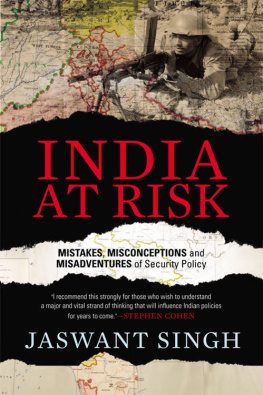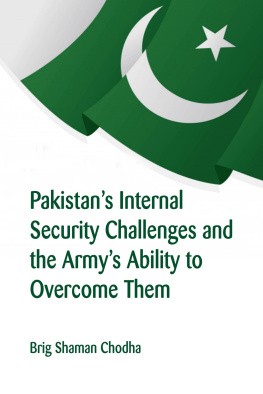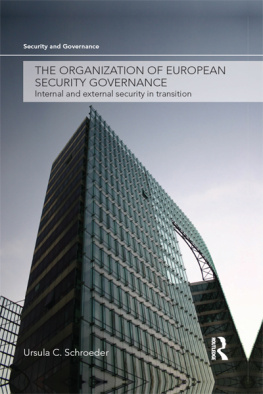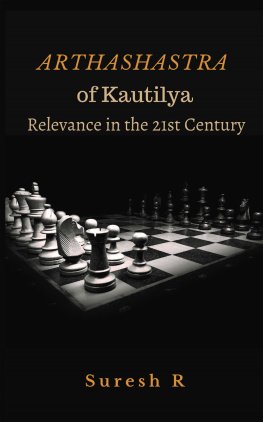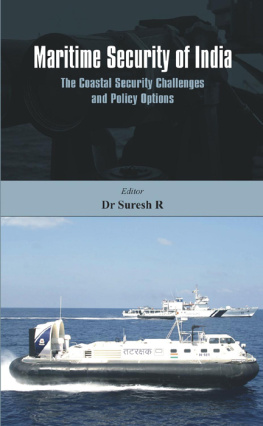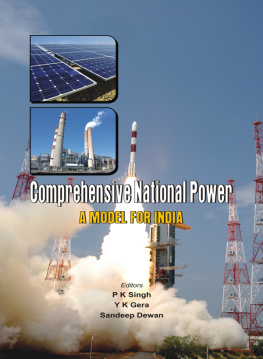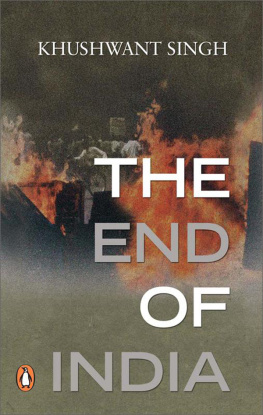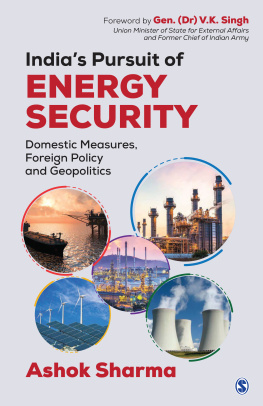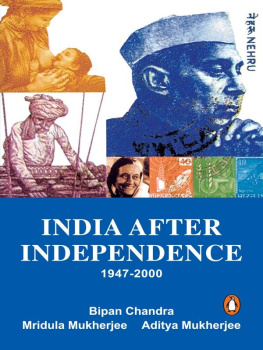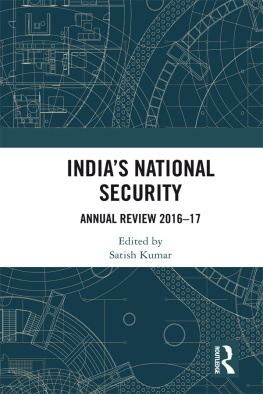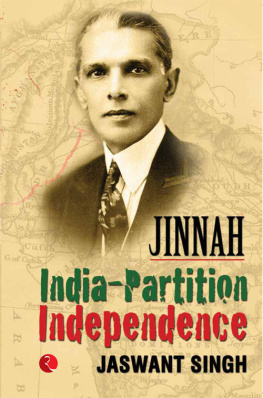INDIA AT RISK
INDIA AT RISK
MISTAKES, MISCONCEPTIONS AND
MISADVENTURES OF SECURITY POLICY
Jaswant Singh

Published in RAINLIGHT
by Rupa Publications India Pvt. Ltd. 2013
7/16, Ansari Road, Daryaganj
New Delhi 110002
Sales centres:
Allahabad Bengaluru Chennai
Hyderabad Jaipur Kathmandu
Kolkata Mumbai
Copyright Jaswant Singh 2013
All rights reserved.
No part of this publication may be reproduced, transmitted, or stored in a retrieval system, in any form or by any means, electronic, mechanical, photocopying, recording or otherwise, without the prior permission of the publisher.
First impression 2013
10 9 8 7 6 5 4 3 2 1
The moral right of the author has been asserted.
Typeset by Recto Graphics
Printed at [PRINTERS NAME, CITY]
This book is sold subject to the condition that it shall not, by way of trade or otherwise, be lent, resold, hired out, or otherwise circulated, without the publishers prior consent, in any form of binding or cover other than that in which it is published.
Contents
PREFACE
This work re-examines some of independent Indias major security challenges, internal and external. How did we handle them? In such a decisive manner that they were met successfully, thus eliminating any further threat from them to our national security, or did we fail to answer these challenges adequately, consequently perpetuating them? Which is why this title India At Risk: Mistakes, Misconceptions and Misadventures of Security Policy .
This title is not the outcome of any partisan considerations, or prejudices. It is the result of a lifelong passion for attempting to learn why governments act the way they do, how decisions of fundamental importance to the country, its security, to its citizens, indeed to their very lives and safety, are made. This search has made me a permanent student of policies of national security. I have often wondered if there are some immutable laws that determine events, or is it only human decision-making that causes them.
Human judgements will be erroneous, self-evidently, and consequences will then follow inevitably. Then, how are accounts of such fundamental importance to countries written or, indeed, often not written at all, as in our case? Why are only some such accounts shared with everyone, whereas others are not revealed, though, consequences are borne uniformly by innocent citizens. The explanation that we are always offered is that it is in national interest that such accounts not be disclosed. But what is in national interest? True, candid, objective accounts or tailored summaries?
This book also attempts to understand what constitutes our countrys interests and opens at least some of those locked doors by re-examining handed-down versions.
This raises a connected question: What shapes history? Of course, the social and political characteristics of a people, primarily their governments, which principally influence events, and thus history, too. Yet, are even these entirely autonomous functions? Indeed, can they ever be so? And, therefore, who must be held responsible for consequences, favourable or otherwise? Clearly, the principal actors on the scene.
What then of the impact of geography on policy? Is that not a central factor in shaping a land, its peoples characteristics and thus determining their historical evolution? The deliberate re-carving of independent Indias geography, through the vivisection of 1947, as Gandhiji termed it, has impacted our national security profoundly. As did Pakistans breaking up with its eastern wing and the birth of Bangladesh. We now seldom refer to the annexation of Tibet by the Peoples Republic of China and the impact of that on our security, though, Lt Gen. Sir Francis Tuker had termed this land as Indias vital area.
A subsequent question detains us here. Are historical accounts all truthful? Or are they shaped by the narrators partisan preferences? Thus, in the process, influencing the formulation of future policy, too, and perpetuating errors in consequence.
This book is more an enquiry than any judgemental interdiction. It is the consequence of a prolonged search for those principles which ought to guide, if not actually govern and determine, security policies. Why security? For that is at the core of governance. As Ibn Balkhi has made explicit, There is no kingdom without an army, no army without wealth, no wealth without material prosperity, and no material prosperity without justice. This is a succinctly comprehensive enunciation focusing on the roots of security, emphasizing justice. Clearly, untruth and justice cannot travel together.
That raises another question: Are all historical accounts just? I do not think so, they simply cannot be, and for this I find support in an ancient historiographers observations. Ibn Khaldun in The Muqaddimah , many centuries ago, explicitly announced that, Untruth naturally afflicts historical information. There are various reasons that make this unavoidable. One of them is partisanship for opinions [] If the recipient is impartial in receiving information, he/she devotes to that information the share of critical investigation the information deserves, and its truth or untruth thus becomes clear. However, if the recipient is infected with partisanship for a particular opinion or sect, it accepts without a moments hesitation the information that is agreeable to it. Prejudice and partisanship (then) obscure the critical faculty and preclude critical investigation. The result is that falsehoods are accepted and transmitted.
Critical investigation is the key criteria, which this book attempts.
Of course, Ibn Khaldun cites many other factors, too, making untruth unavoidable in historical information, like reliance upon transmitters, or unawareness of the purpose of an event. Very wisely, he adds, Another reason is ignorance of how conditions conform to reality. Conditions are affected by ambiguities and artificial distortions. The informant reports the conditions as he sees them, but on account of artificial distortions he himself has no true picture of them.
Another reason is the fact that people as a rule approach great and high-ranking persons with praise and encomiums [] Human beings long for praise, and people pay great attention to this world and the positions and wealth it offers. Sounds familiar.
Have our accounts of the security challenges that India has faced since Independence suffered from any of these debilities? Yes, quite a few have. This book is an attempt to regain balance in at least some of those narratives.
Another reason making untruth unavoidable, and this one is more powerful than all the other reasons previously cited, is ignorance of the nature of the various conditions obtaining then. Every event (or phenomenon), whether it comes about in connection with some happening or as the result of some action, must inevitably possess a nature peculiar to its essence as well as to the accidental conditions that may attach themselves to it. If we know the nature of events and the circumstances and requirements of its existence, it will help us distinguish truth from untruth in investigating the historical information critically. This is another way of focusing on the centre of gravity of a challenge.
This, too, the book attempts as best as possible. There are no exaggerated claims that I can or do make about total objectivity. It is a search that I set out on in attempting this work. Inevitably, my search and my conclusions will suffer from some of the debilities mentioned earlier. A correction of such angularities has now been attempted. Possibly, some success in that has been achieved. But that is for the readers to judge.
Next page
